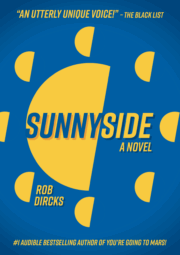On Grants
by Gillian Polack
It’s suddenly harder to make a living as a writer. It was never easy.
Setsu Uzumé recently wrote on the possibility of obtaining grants from regional or local governments. This article will walk you through some of the steps to get a local or regional government grant. I am Australian, so there will be some unfamiliarity in wording.
I have received a number of regional grants and fellowships, I have been a peer assessor for grants, and I am very much a writer of speculative fiction. I am not the kind of writer who looks as if they will get a grant: I am not well-known. How did I do this thing and what parts of the experience are transferable?
For every big or even moderate grant there are hundreds of smaller grants. These are the grants I’m writing about.
First, discover where you fit in the writing world as the grant givers see it. It’s like finding the right agent or publisher. For example, if you’re looking into local or regional government grants (my most recent is from ArtsACT, i.e., regional government), check the writing of previous recipients. Research the grant givers. Find what they regard as important and what writers/writing have received their grants. If they haven’t given any grants to SFF writers, that doesn’t mean you can’t get one. In my application I addressed the COVID crisis and how a grant for world-building and equipment would give me more stories to write. I addressed what they knew in my application. Some grant givers like cutting edge and some adore literary work.
Know where you’re visible. Even if you’re visible locally, explain your accomplishments in the grant application, i.e., make sure you’re visible. For some grants, it’s important that the writing industry knows you, that you are famous. For those, it helps to be within reach of New York publishing, or to have the right agent, or to be visible in the right critical circles. Locus only ever mentions me as a non-fiction writer, and I’ve been shortlisted for Australian SF awards but never considered for a Hugo: I don’t apply for grants for famous writers. I watch for grant bodies that like edgy thinkers who write well and know stuff. That’s my best profile.
Step One, then, is to find all available grants. Look at council and city websites, organization websites and at sites like these: https://fundsforwriters.com/grants/ https://www.womenarts.org/funding-resources/literary-indiv-artists/ https://www.americansforthearts.org/by-topic/funding-resources?qt-funding_resources=2#qt-funding_resources https://www.arts.gov/grants/apply-grant/grants-individuals (deadline next March), and, for COVID-related grants, https://www.arts.gov/covid-19-resources-for-artists-and-arts-organizations
Break down the grant into:
- Can this body see me?
- What can they see me as?
- What credits do I have to make me look better?
Use your answers to give what the grant body needs to see to place you in their perspective.
Step Two is demonstrating clearly that you are perfect for this grant in particular. Prove it.
Explain how special the project is. Speculative fiction writers are legion. Many of our descriptions sound similar. Similar competes with similar…and we are legion. Show how you are unique.
Discourse analysis is your friend. Government agencies aren’t, for the most part, interested in the same “special” as agents or publishers or marketing bodies. In February, I used 300 words to explain that I would tackle how we encode our cultural narratives and how prejudices fit into novels without the author necessarily knowing. I talked about my long-term plans. I incorporated my personal needs, public needs, needs of the grant body, and its government kin. I got the grant.
Your work must read effortlessly and it has to explain everything. It has to fit precisely into the guidelines given by the grant body.
The application must demonstrate how it meets the goals of the grant at every turn. The more your project meets those goals and shows it meets them, the more you creep up the ranks and the more likely you are to receive a grant.
In February I argued:
“My non-fiction book is cutting edge. It will present to readers new ways of reading books and interpreting narratives and those ways will give them more control over the ideas they accept from the story. It will give writers the capacity to see what they put into their fiction without realizing and to address their own prejudice and cultural issues.” The rest of my application explained how I did this and how much money I needed.
Don’t just say, “I can do this thing.” Say, “I can do this thing because I’ve done these other things and look, I have proof I did them well.” Demonstrate your experience and capacity.
Speculative fiction is at an advantage right now for some grants. Most people assume otherwise, but pushing ideas and testing literary boundaries is part of the current discourse. It’s what I’m doing, too. Never argue something you’re not doing!
Is it possible to get a grant during a crisis? Yes. I have had several grants this year. I mentioned the problems the bushfires had created in my February application. Other grants have, in fact, come from government support for writers during the crisis.
Show how the grant will be important to your career. My new grant was to turn COVID-19 o into a terrific opportunity for worldbuilding and my winter one was to stop the bushfires from killing my career due to unfinished projects.
Now for the money side.
What has been previously awarded by the grant body? What sorts of projects? What sort of amounts? For my winter grant I talked about my collapse of opportunity and income from the bushfires. I asked for enough to pay basic bills while I completed two projects. Small amounts are easier to argue for when competition is fierce.
The bottom line: translate your dreams into words that have meaning for others. Grant applications are just like SF/F in that way. Translate your dream into their language, sticking to their guidelines and using your voice.
 Dr Gillian Polack is an Australian science fiction and fantasy writer, researcher and editor. She was recently awarded the A Bertram Chandler Award, for lifetime achievement in science fiction. Her 2019 novel The Year of the Fruit Cake won the 2020 Ditmar for best novel and was shortlisted for best SF novel in the Aurealis Awards. She wrote the first Australian Jewish fantasy novel (The Wizardry of Jewish Women). Gillian is a Medievalist/ethnohistorian, currently working on how novels transmit culture. Her work on how writers use history in their fiction (History and Fiction) was finalist for the William Atheling Jr award for criticism/review. Her hobbies include researching historical foodways and reading. She has a collection of select and very attractive fans. (Photo credit: Sanna Pudas)
Dr Gillian Polack is an Australian science fiction and fantasy writer, researcher and editor. She was recently awarded the A Bertram Chandler Award, for lifetime achievement in science fiction. Her 2019 novel The Year of the Fruit Cake won the 2020 Ditmar for best novel and was shortlisted for best SF novel in the Aurealis Awards. She wrote the first Australian Jewish fantasy novel (The Wizardry of Jewish Women). Gillian is a Medievalist/ethnohistorian, currently working on how novels transmit culture. Her work on how writers use history in their fiction (History and Fiction) was finalist for the William Atheling Jr award for criticism/review. Her hobbies include researching historical foodways and reading. She has a collection of select and very attractive fans. (Photo credit: Sanna Pudas)


